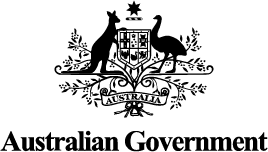Progress made with implementing consistent metering standards
Progress made with implementing consistent metering standards
The second annual Metering Report Card, released by the Inspector–General of Water Compliance (IGWC), has highlighted some progress towards consistent metering across the Murray–Darling Basin. However, the Inspector–General, the Honourable Troy Grant says there is still some work to be done before Basin States meet the deadline for metering reform by July 2025.
“This is the second iteration of the report card, which means we can now track progress towards these commitments under the Compliance Compact. The adoption of telemetry has seen both NSW and Victoria make progress towards meeting goals in this area. Victoria’s percentage of meters with telemetry increased by 16% and NSW increased by 6% since the 2020-21 report card,” said Deputy Inspector–General of Water Compliance for Regulation, Daniel Blacker.
For the reporting period, South Australia and Queensland did not have any telemetry policies in place, while the small geographic size of the ACT means there are minimal benefits of implementing telemetry. However, South Australia is now trialling retrofitted telemetry and Queensland has made significant policy changes after 30 June 2022, which will be reflected in the next report card.
“One of the key priorities of the Inspector-General of Water Compliance’s Work Plan is to build trust and confidence in how Basin resources are being managed, and an important way of doing that is working with the Basin States to develop an annual Metering Report Card which keeps track of meter coverage, how accurate the meters are, and whether telemetry – or automated metering – is being implemented,” said Mr Blacker.
The Inspector–General also noted there are some challenges around finding certified meter installers (CMIs) to validate, upgrade and maintain non-urban meters. While the number of CMIs in NSW increased from 161 to 175, it remains a big issue negatively affecting metering reform. There are now also fewer CMIs in Queensland and Victoria. The IGWC will continue to monitor the number of CMIs available, and what impact this has on metering rollout.
“This issue was also identified early on through our extensive field officer network, so the data the states are providing is consistent with what we’re seeing and hearing on the ground at the farmgate,” said Mr Blacker.
“Fulfilling metering reform obligations is reliant on CMI availability in every Basin State. I will continue monitoring this issue for future report cards.”
“There’s still a long way to go to ensure accurate metering across the Basin, but I’m positive about the progress that has been made and that the states are continuing to make, ultimately building trust and confidence in water management,” said Mr Blacker.
View the 2021-22 Metering Report Card on the Reviews and Reports section of the website.





